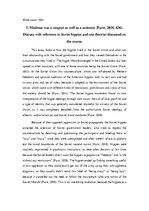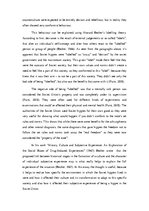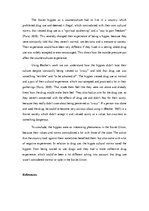-
Madness Was a Weapon as Well as a Sentence
Using Becker’s work we can understand how the hippies didn’t lose their culture despite constantly being viewed as “crazy” and told that drug use was something “terrible” and “to be ashamed of”. The hippies viewed drug use as normal and a part of their cultural experience, which was accepted and practised a lot in their gatherings (Furst, 2018). That made them feel like they were not alone and already knew how the drug would make them feel. They also had an aim for the drug use, so they weren’t concerned with the effects of drug use and didn’t fear for their sanity, because they really didn’t care about being perceived as “crazy”. If a person was alone and used the drug, he could’ve become very anxious about using it (Becker, 1967) in a Soviet society which didn’t accept it and viewed sanity as a value, but craziness as something dangerous.
To conclude, the hippies were an interesting phenomena in the Soviet Union, because their values and norms contradicted a lot with those of the state. The action that the country took against them sometimes benefited them, but also came with a lot of negative experiences. In relation to drug use, the hippie cultural norms saved the hippies from being scared to use drugs and they had a more collective drug experience, which could’ve been a lot different taking into account that drug use wasn’t considered normal or sane in the Soviet Union.
…
Madness was a weapon as well as a sentence (Furst, 2018: 836). Discuss with reference to Soviet hippies and one theorist discussed on the course. This essay looks at how the hippies lived in the Soviet Union and what was their relationship with the Soviet government and how they viewed themselves in the circumstances they lived in. The hippie lifestyle emerged in the United States, but later spread to other countries, with one of those countries being the Soviet Union (Furst, 2015).




